Napoletano e regista di talento. Emanuele Palamara, classe 1986, vanta un cursus honorum di tutto rispetto. Dal 2009, dopo il corso di cinema all’Università La Sapienza di Roma, numerosissime sono state le collaborazioni come assistente alla regia dei più prestigiosi nomi del panorama artistico. Nomi del calibro di Matteo Garrone, Francesca Comencini e Stefano Sollima, solo per citarne alcuni.
Nel 2011, il debutto da regista indipendente, con il cortometraggio “Papà”, con Remo Remotti e Luciano Scarpa; un corto che ha partecipato ad oltre settanta festival, ottenendo molti consensi su tutto il territorio nazionale. Nel 2014, poi, tornato alla regia per “La Smorfia”, trova tra gli altri riconoscimenti – dalla California alla Russia – anche la selezione ufficiale ai Nastri d’argento 2016 e il lavoro viene acquistato da tv come Mediaset, HBO Europe e Japan Tv. “Uomo in mare”, fiore all’occhiello della sua produzione artistica, scritto con l’inseparabile sceneggiatore Pietro Albino di Pasquale, lo ha consacrato al grande pubblico.
L’opera, che ha visto protagonisti gli attori Marco D’Amore, Fabio Balsamo e Lavinia Guglielman, gli è valsa la premiazione ai Nastri d’argento 2017, oltre che la partecipazione al Festival del Cinema di Venezia.
In collaborazione con Alessandro Siani è stato, lo scorso anno, regista per uno degli episodi del film “San Valentino Stories”.
Insomma, ne ha fatta di strada.
“Ogni lavoro ha bisogno di studio e gavetta: è ciò che ho detto a me stesso quando ho scoperto la passione per il cinema. Ho cercato a lungo contatti per inserirmi in questo mondo come volontario.
Ricordo ancora la mia prima esperienza in assoluto, anche se molti mi hanno scoraggiato in proposito: assistente per un festival del cinema. Ma dentro sentivo che era una giusta occasione, volevo conoscere persone. Arrivato lì, fui sistemato dalla direzione all’ingresso dei padiglioni per gestire l’accoglienza del pubblico e degli artisti; la cosa mi fece innervosire perché ero lontano dal cuore dell’evento. Col senno di poi, quella posizione si è rivelata strategica: dalla porta sono passati tutti! Lì ho conosciuto Paolo Villaggio, Mario Monicelli, Abel Ferrara, solo per citarne alcuni.
Approfittavo di quegli attimi di sosta degli artisti per scambiare battute e riflessioni.
Ed è lì che sono entrato in contatto con Pietro Albino di Pasquale, lo sceneggiatore con cui ho scritto tutto ciò che ho girato fino ad ora”.
E, dopo quell’esperienza sono arrivati i film, da cui ha ‘rubato’ il mestiere.
“Sì. Ho studiato i registi, il loro linguaggio cinematografico.
Ho capito come si lavora con gli attori, quanto e come sfruttare le emozioni della troupe.
Credo di aver imparato soprattutto questo grazie alla gavetta: sentire gli umori di coloro che spenderanno tempo ed energia sul tuo film, come fosse il loro. E se sei bravo, quel film diventerà anche un po’ loro”.
La sua famiglia ha anche origini calabresi e, per questo, il mare ha sempre fatto parte della sua vita.
Che legame ha con l’acqua? C’è qualche aneddoto che si sente di raccontare?
“Mio padre è di Monasterace Marina, un paesino in provincia di Reggio Calabria. Ogni estate, fin da quando ero bambino, avevamo l’abitudine di trasferirci lì per trascorrere la stagione.
In Calabria mi sono sempre sentito libero.
Per molti la spiaggia, il mare e poco altro possono rappresentare elementi noiosi, per me, invece, hanno sempre rappresentato la possibilità di vivere in modo genuino, vero, a contatto con la natura.
Credo che questo sia lo spirito del Sud e spero di averlo trasferito dentro di me. Mio nonno era italoamericano, tornato in Calabria a fare il pescatore dopo aver vissuto negli Stati Uniti per diciotto anni, possedeva un gozzo e mi portava con lui a tirare le reti, già da piccolissimo.
Ancora sento l’odore del legno di quelle barche e la pace del mare aperto.
Dopo la sua morte, la tradizione è continuata con mio padre e con mio zio: il mare è un elemento imprescindibile nella mia vita”.
Com’è il suo rapporto con Napoli?
“Un amore infinito, anche se a volte mi fa arrabbiare. Spesso sono turista della mia città, passeggio tra i vicoletti, la guardo e, ammirandola, non posso fare altro che dire ‘quanto sei bella!’”.
E Capri la conosce?
“Molto bene.
Dalle gite in famiglia a quelle con gli amici, non ha mai smesso di stupirmi con il suo fascino etereo e ammaliante, come la più intrigante delle sirene”.
The spirit of the south at the movie theater
Emanuele Palamara, born in 1986, is a talented Neapolitan movie director boasting a remarkable cursus honorum. After a cinema course at the university La Sapienza in Rome, in 2009, he has given his contribution as assistant director for the most eminent names in the artistic landscape. Names such as Matteo Garrone, Francesca Comencini and Stefano Sollima, just to name a few.
In 2011, he debuts as an independent director with the short movie “Papà”, starring Remo Remotti and Luciano Scarpa; a short movie that competed in over seventy festivals, earning a positive approval across the country. In 2014, then, he returns directing for “La Smorfia”, for which, among other awards – from California to Russia – he is awarded with the official selection for the 2016 Nastri D’Argento, and his work is purchased by television broadcasters such as Mediaset, HBO Europe and Japan Tv. “Uomo in mare”, flagship of his artistic production, written together with the inseparable playwriter Pietro Albino di Pasquale, introduced him to the general public. This work, starring actors Marco D’Amore, Fabio Balsamo and Lavinia Guglielman, earned him an award at the 2017 Nastri d’Argento, and the participation at the Venice Film Festival. Last year, in partnership with Alessandro Siani, he directed one of the episodes of “San Valentino Stories”.
In conclusion, he worked his way.
“Every work needed study and sacrifices: that’s what I said to myself when I discovered my passion for cinema. I searched for a long time some contacts to enter this world as a volunteer. I still remember my very first experience, even if many dissuaded me: assistant at a film festival. Inside me, I felt that was the right chance, I wanted to meet some people. When I got there, I was arranged by the direction at the booths’ entrance to manage the reception for the public and artists; I was a little upset because I was far from the heart of the event. In hindsight, that was actually a strategic position: everyone passed by the entrance! It was there that I met Paolo Villaggio, Mario Monicelli, Abel Ferrara, just to name a few. I took advantage of the artists’ brief breaks to exchange some thoughts. That’s how I met Pietro Albino di Pasquale, the playwriter with whom I wrote everything I have directed so far”.
And, after that experience, the movies arrived, from where you “stole” the secrets of this job.
“Indeed, I studied the directors, their cinematographic language. I learned how you must work with actors, in which ways you must employ the feelings of the crew. I think I learned all this especially thanks to my first experiences: experiencing the emotions of the ones who will spend time and energy on your movie, just as if they were your own emotions. And if you’re good, then that movie will become a little theirs, as well”.
Your family comes from Calabria and, for this reason, the sea has always been part of your life. What is your connection with water? Are there any episodes you want to tell us about?
“My father comes from Monasterace Marina, a little town in the province of Reggio Calabria. Every summer, ever since I was a child, we used to move there to spend the season. In Calabria, I’ve always felt free. For many, the beach, the sea and little else can become tedious, but for me, instead, they always represented the possibility of living in a simple, genuine way, in close contact with nature. I believe this is the spirit of the South, and I hope I can preserve it inside of me. My grandfather was Italian-American, and he came back to Calabria to work as a fisherman after living in the United States for eighteen years. He owned a fishing boat, and he used to bring me with him to cast the nets, when I was still very young. Even today I can still feel the wood of those boats, and the peace of the open sea. After his death, this tradition lived on with my father and uncle: the sea is an essential element in my life”.
What’s your relationship with Naples?
“An endless love, even though sometimes it makes me mad. I’m often a tourist in my city, walking through the narrow alleys, I look at it and, in awe, I can’t say nothing else if not ‘you’re so beautiful!”.
Do you know Capri?
“Very well, I’d say. During my trips with friends and family, Capri never ceased to amaze me with its heavenly charm, like a most intriguing siren”.


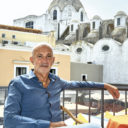



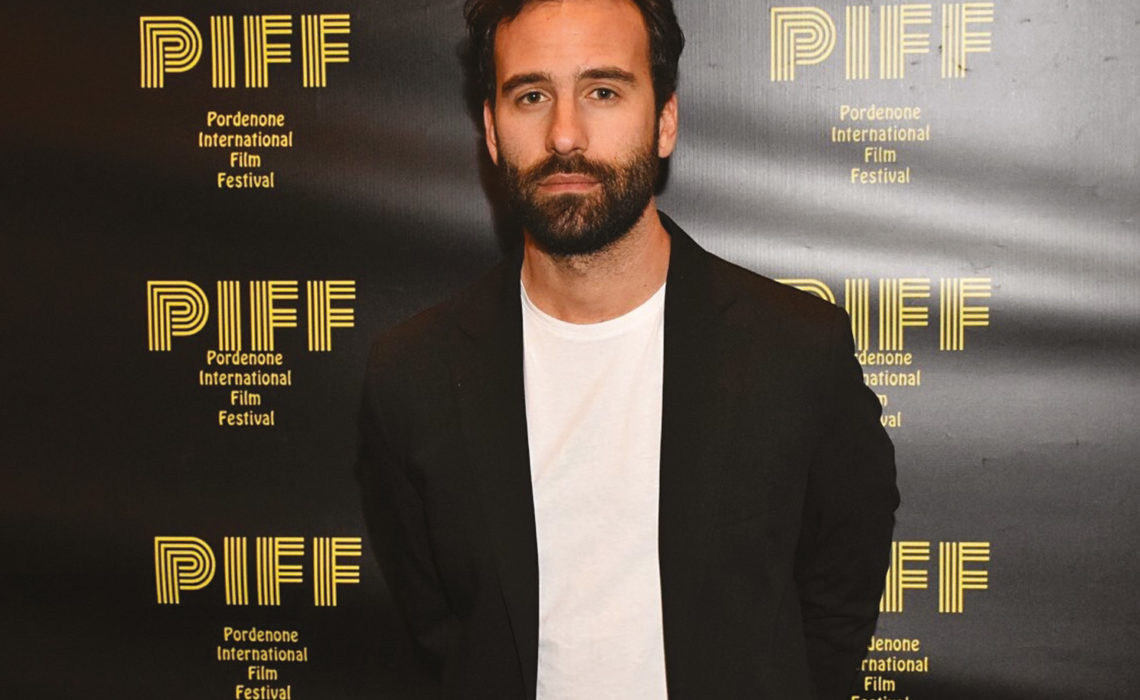
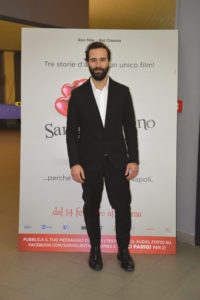
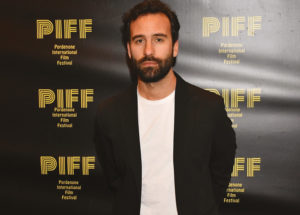
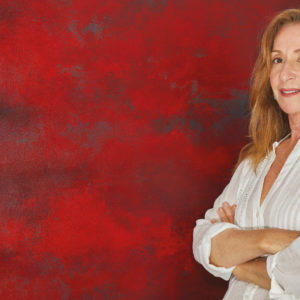
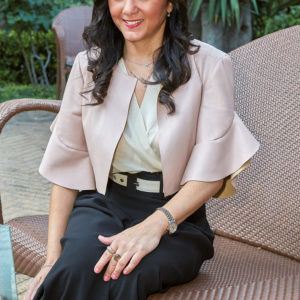
No Comments